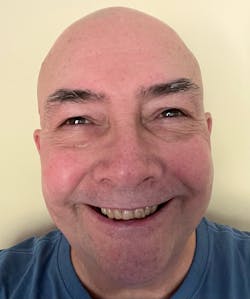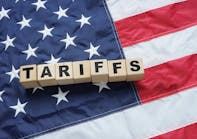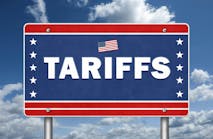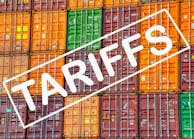PLASTICS: Setting the highest standard for safety

One of the things we’re most proud of at PLASTICS is our role as an ANSI-accredited producer of machinery standards, developed by working groups coordinated by our Machinery Safety Standards Committee.
Recently, a valued PLASTICS member of that committee — Keon Wild, VP, product reliability for Davis-Standard — retired after 43 years in the industry. PLASTICS values the work Keon contributed over his many decades and recognizes his dedication to making such a difference in the industry. Steadfast work like Keon’s is not only appreciated by those in our industry, but is also greatly inspiring.
“Keon has given generously of his time and expertise in leading the development of two important safety standards for our industry: ANSI/PLASTICS B151.5, Safety Requirements for Plastic Film and Sheet Winding and Unwinding Machinery, as well as a new project to develop a safety standard for flat cast and cast embossed extrusion machines,” said Jeffrey Linder, Director of Industry Standards for PLASTICS. “PLASTICS is grateful for Keon’s commitment and dedication in helping to ensure a safer environment, on and around plastics machinery. His contributions will be impactful and longstanding.”
Discovering a passion
Armed with a two-year degree in Mechanical Engineering, Wild began his career in 1979 with Black Clawson Converting Machinery, which merged with Davis-Standard in 2005. He developed a great passion for engineering and was never quite happy when his career took him away from it.
“I helped develop our CAD system for a few years but then moved back to engineering,” he said. “I missed the ability to go down and see the equipment I had designed on being assembled on the shop floor.”
Making careful decisions
The next time Wild allowed himself to be coaxed out of engineering, he thought long and hard, eventually making a move in 2003 to a position where he has had the opportunity to do good things for his company and the people who use Davis-Standard machinery.
“My predecessor in this job was kind of pressing me to take it when he retired, but I was very hesitant because of the mistakes I'd made in the past, getting out of engineering and not making what I felt was my strongest contribution to the company,” Wild said. “It was a very hard decision to move from the engineering world into product safety/product liability, but it was a move I don’t regret.”
Enjoying new opportunities
It was after moving into that safety/liability world that Wild became aware of the opportunity to work with PLASTICS on ANSI-accredited standards. It all started when a call went out for a group to work on updating ANSI B 151.5 for winding and unwinding equipment.
“Because of my position, I had to look at both the European standards and American standards for equipment, attempt to take the best practices out of those two, and apply them to our equipment across the board,” Wild said. “My hope was to harmonize the two winding/unwinding standards together, so we were consistent between the European Union and what we have in ANSI. And we were able to achieve that.”
Setting standards means touching lives
While Wild had, more than once, made a change that left him unfulfilled because he was removed from designing and making machinery, he found exceptional fulfillment in this new role — seeing to it that equipment was being built and operated with the highest attention to operator safety.
“One of my goals, and where I feel the greatest sense of achievement in working in standards development, is the hope that people who use this equipment come into work in the morning and go home at night. The last thing I want is somebody to get hurt on a piece of equipment,” he said.
We asked Wild what an ideal working group for a standard would look like. He said it would have 10 members, consisting of equipment manufacturers, equipment users and people who have experience with OSHA and the issues they bring to the table — which brings us to the realization that we need more people to step up and help us with our ongoing standards work at PLASTICS.
“Participation from industry experts is the lifeblood of PLASTICS’ Standards Program,” Linder said. “Without the strong support we receive from volunteers such as Keon Wild and the companies that back them, we couldn’t provide the high-quality safety standards the industry has come to depend on.”
One does not have to be working for a PLASTICS member company to participate in the PLASTICS Standards Program. Experts interested in offering their assistance are encouraged to contact Linder at jlinder@plasticsindustry.org.





